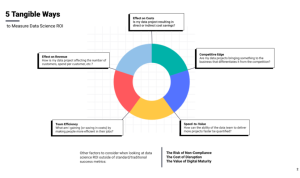BI as a Competitive Advantage in Saturated Markets introduces a crucial aspect of contemporary business strategy. In an era where markets are flooded with similar products and services, leveraging Business Intelligence (BI) can set organizations apart. Companies are increasingly turning to data-driven insights to refine their strategies, optimize operations, and enhance customer experiences, making BI an essential tool for gaining a competitive edge.
As organizations navigate the complexities of saturated markets, understanding customer behavior and market trends becomes vital. BI provides the analytical framework to interpret vast amounts of data, enabling businesses to make informed decisions that resonate with their target audience. From identifying gaps in the market to predicting future trends, the integration of BI into business processes can lead to innovative solutions and sustained growth.
The Importance of Mindfulness in Today’s Fast-Paced WorldIn our increasingly fast-paced society, the concept of mindfulness has gained significant attention and importance. It’s a practice that helps individuals focus on the present moment, encouraging a mindful awareness that can enhance overall well-being. As people juggle numerous responsibilities, from work commitments to social obligations, the practice of mindfulness serves as a refuge, allowing a moment of clarity amidst the chaos.So, what exactly is mindfulness?
At its core, mindfulness is the practice of paying attention to the present moment without judgment. It involves observing one’s thoughts, emotions, and sensations as they arise, fostering a deep connection with one’s experiences. This practice can take many forms, from meditation to simple breathing exercises, and it encourages individuals to cultivate an awareness of their surroundings and inner landscape.The origins of mindfulness can be traced back to ancient practices in Buddhism, where it was used as a tool for spiritual awakening.
However, in recent years, mindfulness has transcended its spiritual roots to find its way into mainstream psychology, education, and even corporate training programs. This evolution reflects a growing acknowledgment of the profound benefits that mindfulness can offer in various aspects of life.One of the most compelling reasons to practice mindfulness is its positive impact on mental health. Research has shown that mindfulness can significantly reduce symptoms of anxiety and depression.
By fostering a non-judgmental awareness of thoughts and feelings, individuals can learn to observe their emotions without becoming overwhelmed by them. This shift in perspective can lead to a better understanding of one’s emotional patterns, ultimately promoting healthier coping mechanisms.Moreover, mindfulness is associated with improved focus and concentration. In an age where distractions abound, the ability to concentrate on tasks at hand is a valuable asset.
Mindfulness trains the brain to stay present, enhancing cognitive function and productivity. By practicing mindfulness techniques, individuals can improve their ability to concentrate on work, studies, or any task that requires sustained attention.Additionally, mindfulness can improve interpersonal relationships. It encourages empathetic listening and understanding, allowing individuals to connect with others on a deeper level. When individuals practice mindfulness, they become more aware of their reactions and behaviors in social situations.
This awareness can lead to more thoughtful communication and a reduction in conflicts, fostering healthier and more meaningful relationships.Incorporating mindfulness into daily life doesn’t require extensive time or resources. Simple practices such as mindful breathing, body scans, or even mindful walking can be seamlessly integrated into one’s routine. For instance, taking a few minutes each day to focus on one’s breath can ground a person and create a sense of calm.

Mindful eating is another practice that encourages individuals to savor their meals and appreciate the flavors and textures, promoting a healthier relationship with food.For those new to mindfulness, it can be helpful to start small. Begin by setting aside a few minutes each day to practice mindfulness. Find a quiet space, sit comfortably, and focus on your breathing. If your mind wanders, gently bring your attention back to your breath.
Over time, this practice can become more natural, allowing you to gradually extend the duration and incorporate mindfulness into various activities throughout your day.Another effective way to cultivate mindfulness is through guided meditation. Many apps and online resources offer guided sessions that can help beginners navigate their mindfulness journey. These resources often provide structured programs that cater to different needs, whether it be stress reduction, improved sleep, or emotional healing.
Engaging with these resources can provide additional support and motivation for individuals seeking to incorporate mindfulness into their lives.In the workplace, mindfulness can be a game-changer. Many organizations are beginning to recognize the benefits of mindfulness for employee well-being and productivity. By fostering a culture of mindfulness, companies can create a more positive work environment, leading to increased job satisfaction and reduced burnout.
Mindfulness training sessions can equip employees with tools to manage stress, improve focus, and enhance collaboration among team members.However, it’s important to acknowledge that mindfulness is not a panacea. While it offers numerous benefits, it may not be the solution for everyone. Individuals struggling with severe mental health issues should seek professional help and consider mindfulness as a complementary practice rather than a replacement for traditional therapy.
As we navigate the complexities of modern living, mindfulness emerges as a powerful tool for enhancing our quality of life. It invites us to pause, breathe, and reconnect with ourselves and the world around us. By incorporating mindfulness into our daily routines, we can cultivate a greater sense of peace, clarity, and presence, allowing us to flourish in our personal and professional lives.In conclusion, the practice of mindfulness is more relevant today than ever before.
It serves as a reminder to slow down, appreciate the present moment, and foster a deeper connection with ourselves and others. As we embrace mindfulness, we can transform our experiences and navigate the challenges of life with grace and resilience. Whether through meditation, breathing exercises, or simply being present in our daily activities, the journey toward mindfulness holds the promise of a more fulfilling and enriched life.Ultimately, mindfulness is an invitation to engage fully with the present and to approach life with curiosity and compassion.
By taking the first steps towards incorporating mindfulness into our lives, we open the door to a world of possibilities, creating a path toward emotional balance, improved relationships, and overall well-being. So why not take a moment today, breathe deeply, and embrace the beauty of the present moment? It’s a simple yet profound practice that can lead to transformative outcomes, one mindful breath at a time.








